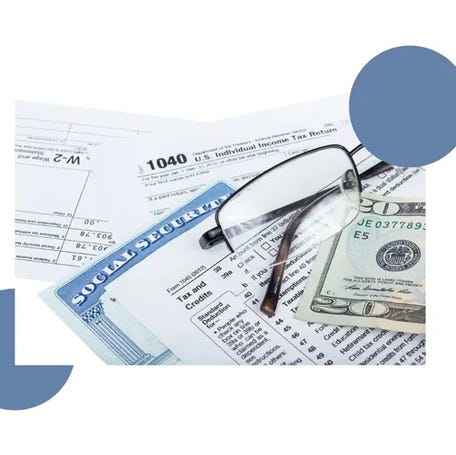| | Daniel de Visé | Personal Finance Reporter
| | |
Good morning. This is Daniel de Visé with your Daily Money, Sunday Tax Edition. |
On Sundays between now and April 15, we'll walk you through what's new and newsworthy in Tax Season 2024. |
In today's edition, we're going to talk about tax credits. |
What is a tax credit, anyway? |
Broadly speaking, a tax credit is a dollar-for-dollar amount that taxpayers subtract directly from the income taxes they owe. From the government's perspective, experts say, tax credits are a way of encouraging us to achieve life's milestones. |
The credits built into the American tax system are "what make it complex, but also are really designed to reward and incent American behaviors: getting educated, having children, buying homes," said Jeff Jones, CEO of H&R Block, in an interview. |
A tax credit differs from a tax deduction in important ways. A tax credit is a specific amount subtracted from what a person owes. For example, if you receive a tax credit of $2,000 on a $4,500 tax bill, the debt would diminish to $2,500. |
A tax deduction, by contrast, reduces the amount of your income that is taxed. Let's say you have a taxable income of $60,000 and you receive $10,000 in deductions. That would reduce your taxable income, not your tax, to $50,000. |
Here are some key tax credits to consider in Tax Season 2024. |
This credit is a tax break for households with children under 17. |
For tax year 2023, the maximum tax credit per qualifying child is $2,000, and $1,600 of that sum is potentially refundable. |
Note, however, that a bill pending in Congress would increase the refundable amount to $1,800. |
The value of the child tax credit decreases if the filer's income is more than $200,000 when filing individually, or $400,000 if filing a joint return with a spouse. |
This credit helps low and middle-income taxpayers lower their taxes. Your eligibility, and the amount of the credit, are based on income and age, among other factors. |
For 2023, the credit ranges up to $7,430, depending on income, marital status and how many children you have. |
If you have one child and your adjusted gross income was up to $46,560 (filing alone) or $53,120 (filing jointly with a spouse) in 2023, you can claim up to $3,995 in a refundable tax credit. |
Taxpayers who claim this credit or the child tax credit would be wise to consult with a tax preparer, said Jones of H&R Block. The math is complex, and both credits are prone to abuse by bad actors. |
"Those are places where the IRS is, in particular, on the lookout for fraud," Jones said. |
Child and dependent care credit |
If you are employed and pay for child-care services for a child under 13, you may be eligible for this credit. To qualify, you must have earned income in 2023 and have work-related care expenses, among other rules. |
You can seek the credit for up to $3,000 of expenses for one child, $6,000 for two or more children. The actual credit is a percentage of those expenses. (It's complicated.) See IRS Publication 503 for the formulas. |
American opportunity tax credit |
This credit, intended for college students, covers up to four years of post-secondary education. The full credit is available to anyone with a modified adjusted gross income of $80,000 or less, or $160,000 for married couples filing jointly. |
Depending on income, you could reap a credit up to $2,500 of qualified education costs. |
This credit differs from the one above in that it potentially applies for more than four years of post-secondary education. Also, it's available to students who aren't seeking degrees. |
The credit ranges up to $2,000 per eligible student. For 2023, the full credit is available to taxpayers making $80,000 or less, or $160,000 for married couples filing jointly. Above those sums, the credit phases out. |
This credit applies to contributions to retirement plans. The credit ranges up to $1,000 for people filing as single, $2,000 if filing jointly. |
For 2023, the maximum income for this credit is $36,500 for single filers, $73,000 for married people filing jointly. |
If you adopted a child in 2023, you may be able to qualify for a credit of up to $15,950 in adoption-related expenses you incurred per child. This could include adoption-related attorney fees, adoption fees, traveling expenses and more. |
To claim the full credit, your modified adjusted gross income must be below $239,230. Above that level, the credit gradually phases out. |
This has been a special Sunday Tax Edition of The Daily Money. Each weekday, The Daily Money delivers the best consumer news from USA TODAY. We break down financial news and provide the TLDR version: how decisions by the Federal Reserve, government and companies impact you. | | | |











0 comments:
Post a Comment